Despite being a weed, clover has essential factors to contribute to your lawn. However, if you are someone that doesn't want it to ruin your neat and even yard, considering killing it might be your only option. So, to help you out, we'll tackle our well-researched answer about when and how to apply clover elimination in this post.
Early spring is the ideal time to apply clover killer. Spray the clover only lightly, not so heavily that runoff results. Keep in mind that you could need further applications, especially since a clover weed is a stubborn one. The spray application might need six weeks to eradicate clover.
Getting rid of clover weeds demands you have extra effort and patience. And now that you already know when to apply clover killer, you'll need to know how to do it. So, we suggest you keep reading to solve your problems. Doing so might also answer some of your additional questions. Let's delve into the details!
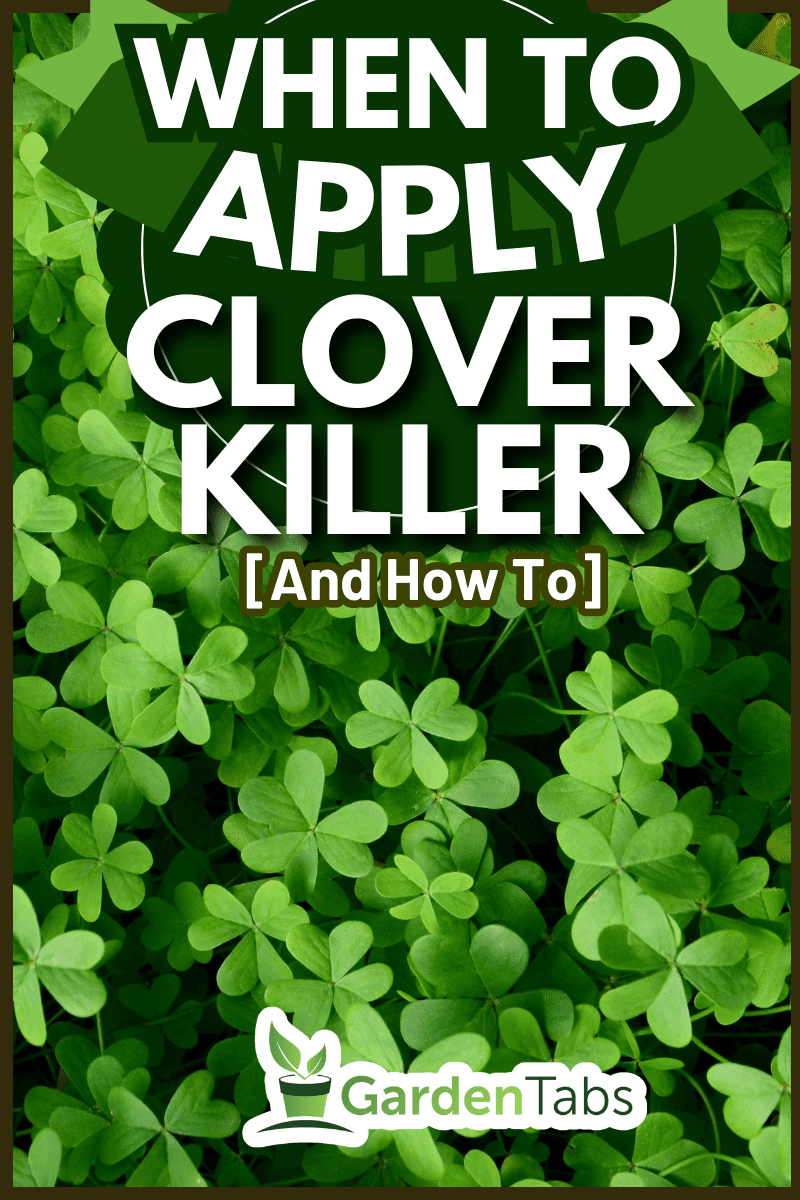
How To Use Commercial Products To Kill Clovers
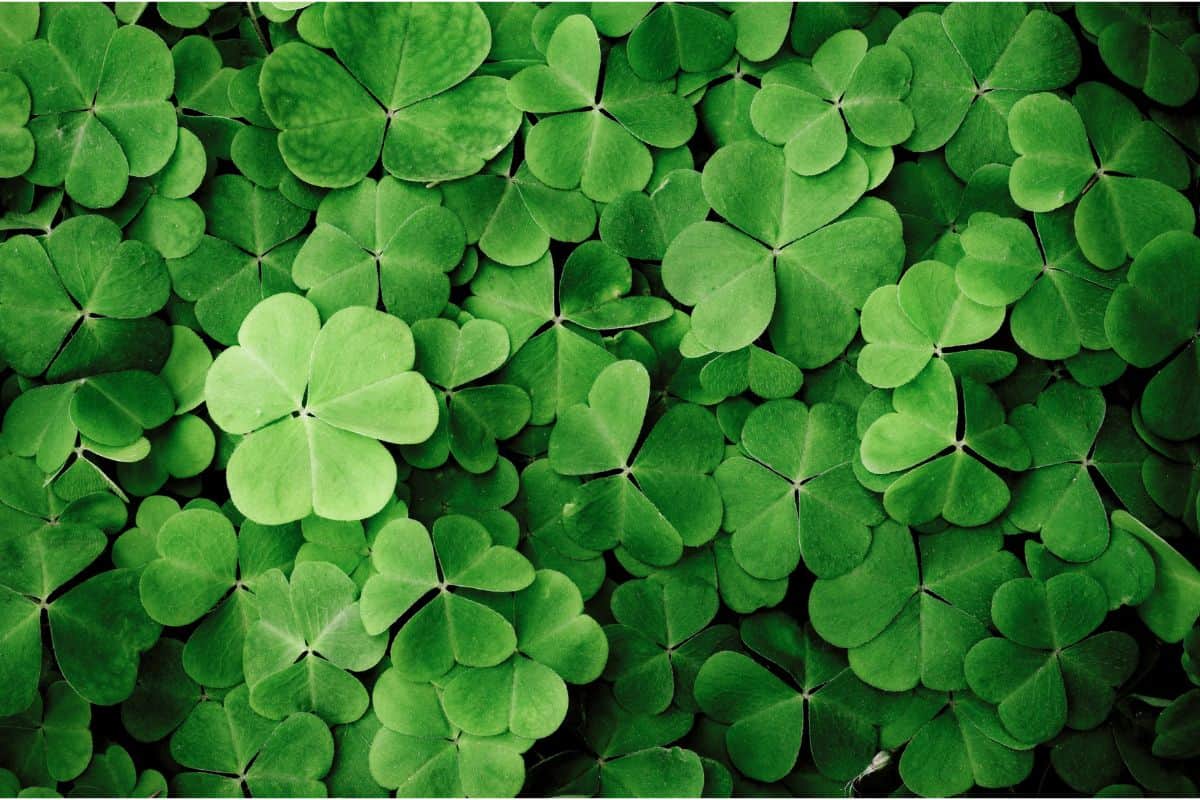
You can use the following products to eliminate those persistent clovers permanently.
1. Spot Treatment Using Herbicide
![Close up of a bunch of green clover, When To Apply Clover Killer [And How To]](https://gardentabs.com/wp-content/uploads/2022/08/Clovers-macro.-When-To-Apply-Clover-Killer-And-How-To.png)
If you want to remove clovers on your lawn, we suggest you use a clover killer or herbicide with 4-Dichlorophenoxyacetic acid and Dicamba. This herbicide can inhibit the growth of the weeds and then gradually kill them.
Spritz the area where the clover lies with the herbicide. You can do this once a month or until it dies. Take care not to harm any other plants with the herbicide you use if you don't want to kill them. You can go to the local hardware store near you to buy herbicides; it is also available online.


Check out this clover and oxalis killer on Amazon.
2. Apply A Fertilizer That Is Rich In Nitrogen

While you can control most weeds with a well-fertilized lawn, ensuring correct nitrogen levels can offer you an additional advantage against clover. This weed thrives in low-nitrogen soil because it can create its nitrogen, so it has an advantage over grass deficient in this essential nutrient. For best results, use a weed-and-feed solution high in nitrogen.
Organic fertilizers may work for a modest amount of clover, but if they are already overspreading, use a regular fertilizer that isn't slow-release.
You can use fertilizers once a month or as directed by the label on the product's container. In addition, to prevent clover from growing, it would be best to apply them every spring.


Click here to see Scott's Weed and Feed on Amazon.
3. Utilize Ammonia To Burn Clover Weeds
To kill the clover, spray it with ammonia and let it sit for a few minutes. The ammonia will kill the clover by suffocating it. In addition, only use a lawn sulfate of ammonia after it rains when the soil is damp.
But if you don't want to wait, you can freely use a garden hose to moisten the area. We suggest applying the ammonia directly to the clover to avoid burning the rest of the lawn.


Click this to see Ammonium Sulfate on Amazon.
What Are The Other Ways To Get Rid Of Clover From Your Lawn
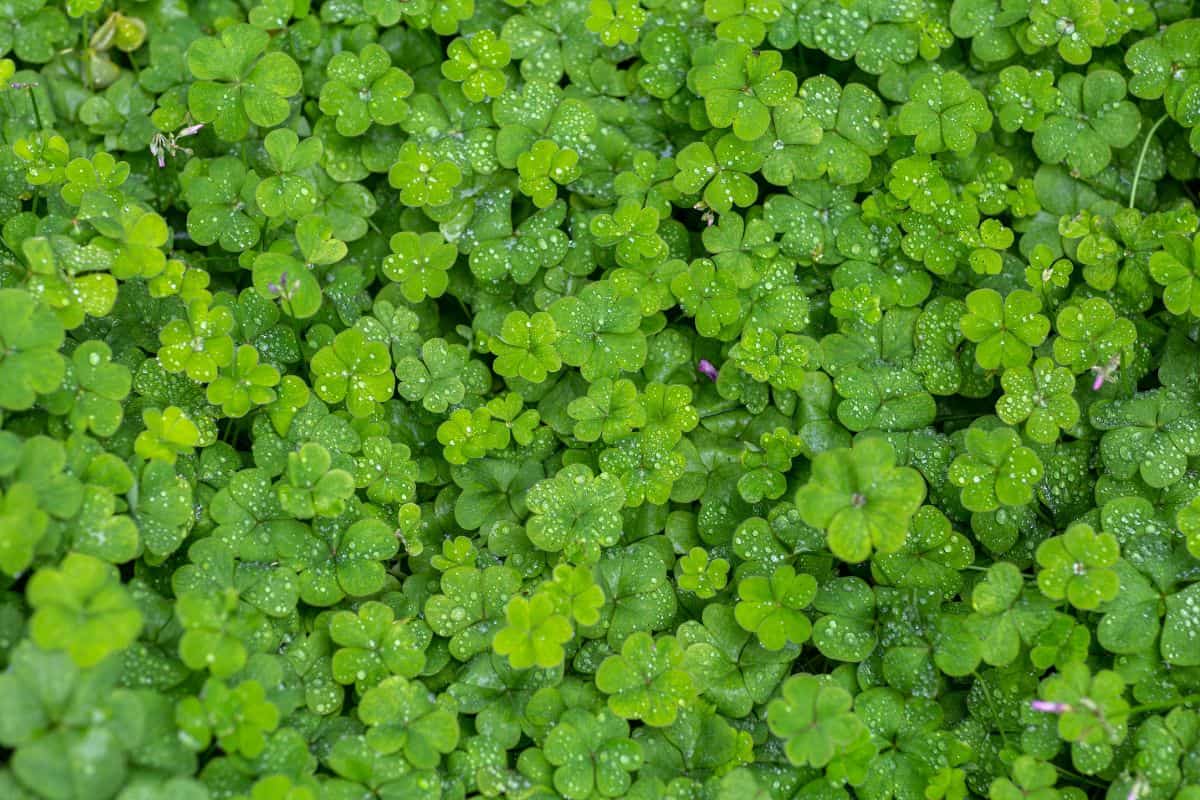
Proper lawn maintenance, such as regular mowing and watering, combined with various creative solutions, can eradicate clover from your lawn. Try one of these effective techniques to achieve desired results.
1. Taking The Clover Out By Hand
You don't want clover to take hold in your garden. You can utilize your fingers to loosen the soil around the base of those stubborn clover clusters and then pull them up. Make sure you get all of the roots in there. Moreover, using a spade can also be helpful.
2. Deprive Clover Of Sunlight And Oxygen
Denying your grass sunlight and oxygen is a natural approach to eradicating clover.
We require you to get a plastic sheeting or trash bag on top of clover weeds to do this step. And you should secure the plastic. This strategy can get rid of the clover weeds in a span of a few weeks. However, using this in large clover-infested areas would be best.
3. Drench Clover Using Homemade Formula
If you don't want to use commercial products for your lawn, you can opt to mix dish soap and vinegar. Spot treat only the clover-covered areas by spraying over them. Just be careful not to damage any nearby plants.
4. Get Rid Of Clover Weeds With Corn Gluten
Using corn gluten to stop clover growth is also a good idea. It is a safe alternative if you highly avoid harming surrounding plants. Corn gluten can release dipeptides into the soil. And those amino acids can dry out clover seeds, which will have a hard time sprouting.
Suppose you have a 1,000 square foot lawn, apply 20 pounds of corn gluten meal. Once you finish, water it well, then let it dry.


Click here to see Concern corn gluten on Amazon.
5. Raise The Height Of Your Mowing To At Least Three Inches
You can control the growth of clover weeds on your lawn if you keep a slightly longer turf.
Clover can't multiply if you have longer turf since they have shallow root systems. In addition, clover prefers to have too much sunlight, so it would be best if you maintain the grass at the height of three inches or more to block direct sunlight from reaching them. Your lawn will be less prone to clover if you do this.
6. Water Your Lawn Adequately
One way to keep clover at bay is to keep the soil at the proper moisture level. Waterlogged turf is ideal for weed seed development, yet thirsty grass often becomes agitated and opens the door to weed invasion.
Even if your soil and grass species dictate how much water you should put in, it would be best to monitor your lawn rather than rely on an irrigation system to do the work for you.
Generally, you should water deeply up to twice a week. However, you must keep in mind that you should water the lawn if you notice that it seems to be drying out and the growth appears to be halted.
7. Get Rid Of Clover Using A.D.I.O.S
This particular clover killer is an organic one. You can opt for this one if you don't want to use chemical herbicides. A.D.I.O.S means Advanced Development In Organic Solutions, and it is entirely safe to use near bodies of water, animals, and crops.
Using this type of weed killer won't affect your grass negatively. It will only get rid of those stubborn clover weeds. And aside from clover, you can also utilize it to get rid of the following:
- Lamb quarters
- Yellow mustard
- Dandelion
- Ground ivy
- Poison ivy
- Ragweed
- Buckthorn
- Bittersweet
- Sumac


Click here to see A.D.I.O.S weed killer on Amazon.
8. Plant Seeds In The Bare Areas
There might be bald spots on your lawn that are even less appealing than the weeds themselves after successfully eliminating clover patches.
To solve this problem, it would be best to immediately spread grass seeds on those bare spots and cover them with an adequate amount of mulch. In addition, to prevent clover from coming back, we suggest you water the grass seeds consistently. And use correct lawn care practices such as fertilization and mowing.
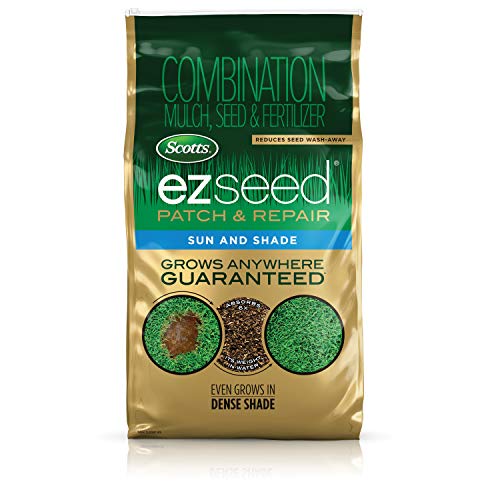

Click here to see the EZ seed patch and repair on Amazon.
What Is The Life Cycle Of Clover
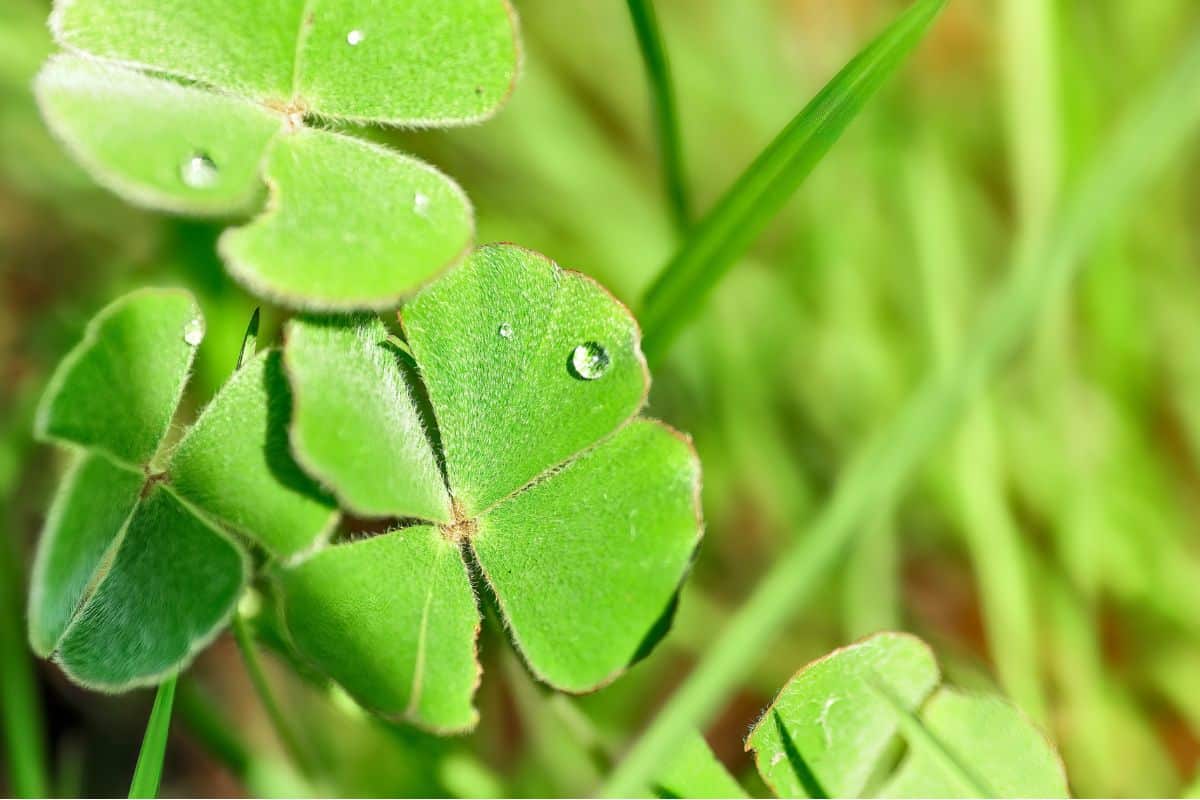
The greening and spreading of clover occur when the soil temperature reaches 50 degrees Fahrenheit. White clover, a common lawn weed, blooms in the spring and summer, and it will spread rapidly if you leave it unchecked. The clover flowers will slowly turn into seeds and sprout during early fall.
Is It Necessary To Remove Clover from My Lawn
Removing clover from your lawn will depend on your lawn requirements. If your ideal yard consists of a carpet of uniform grass blades, you may wish to remove clover from your property.
However, you must know that letting clover invade some, most, or your entire lawn has beneficial factors, and they are:
- It can retain its attractively green color even during times of drought
- It can attract helpful insects, such as bees and ladybugs.
- Clover can produce an enticing aroma
- There is a possibility that clover would suffocate other existing weeds.
Wrap It All Up
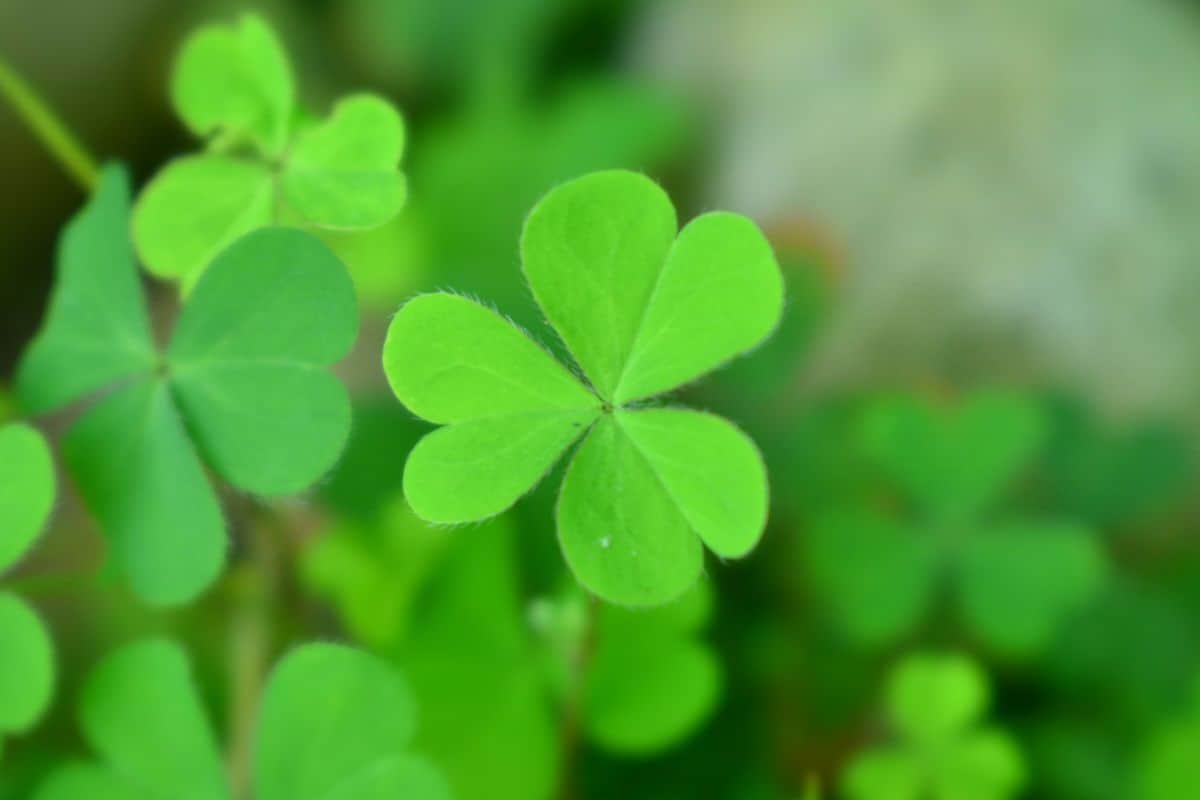
Knowing when and how to apply weed killers on your lawn would always be best. You should not let these weeds invade your beautiful and uniform setup of a lawn. Getting rid of those stubborn weeds, such as clover, is a good idea to make your lawn extraordinarily healthy and appealing.
We hope you learned everything you need to know about clover in this post. If there are any we haven't discussed yet, you might also be interested in our related posts:
